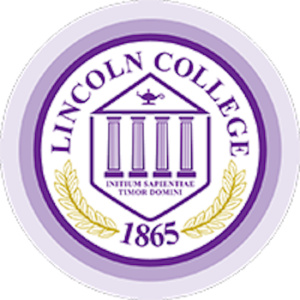
*On this date, in 1865, Lincoln College was founded. This is a private HBCU college in Lincoln, Illinois. Lincoln College's roots date back to the 19th century.
Established by the Cumberland Presbyterian Church but is now independent and has no formal church affiliation. A few other sites were possibilities for the institution; however, in December 1864, the City of Lincoln was chosen. Due to the American Civil War, the denomination wanted to create a college in the north because the denomination's other schools were located in the south. At this same time, a movement started in the new community of Lincoln to start a college. On February 6, 1865, the Illinois General Assembly granted the university's charter.
President Abraham Lincoln was aware the school would honor his name. Lincoln University was the first institution named for Abraham Lincoln and the only one during his lifetime. The groundbreaking for University Hall, the first college building, was held on Abraham Lincoln's last living birthday, six days after the charter had been granted; in September 1865, the building's foundation was completed, with the cornerstone. In November 1866, the college opened its doors to men and women alike. In 1868, three people had earned their degrees. In 1901, Lincoln College was affiliated with the Decatur College and Industrial School (now Millikin University) in Decatur.
The school's name was changed from Lincoln University to Lincoln College of James Millikin University. James Millikin, a wealthy Decatur livestock breeder, offered Lincoln University a $50,000 grant for a new building at the Lincoln campus if the school would turn over its charter. The $50,000 grant was on the condition that the citizens of Lincoln would raise $25,000 for the new building project. The $25,000 was raised, and the $50,000 was to the Lincoln campus. In 1929, Lincoln became a two-year junior college, no longer offering four-year degrees as it had done since its inception. Many junior colleges were created in the 1920s and 1930s. The move helped the college through the Great Depression and World War II financial problems.
The Lincoln College campus experienced substantial growth following World War II. The college has seven dorms, numerous classroom buildings, a library, and a new building dubbed the Lincoln Center, which hosts a gymnasium, state-of-the-art classrooms, and Lincoln Heritage Museum. In 2015, David Gerlach became the 22nd President of Lincoln College. Shortly after Gerlach's appointment, the Lincoln College Board of Trustees approved a plan to return Lincoln College to its roots as a full bachelor's degree-granting institution while retaining its associate degree programs. As of the 2018–2019 school year, about half of the full-time students on the Lincoln campus had declared majors in bachelor's degree programs, with associate degree students comprising the other half of the Lincoln campus student population.
In 2018, business programs at Lincoln College were consolidated under the new MacKinnon School of Business, named in honor of distinguished graduate and successful businessman Alexander "Sandy" MacKinnon. The Higher Learning Commission accredits Academics at Lincoln College. In 2010, Lincoln College, Lincoln, Ill. campus, received Accreditation from the North Central Association of Colleges and Schools for their Bachelor of Arts degree in theater. In 2013, the campus began offering studies toward a Bachelor of Arts in Jazz Studies (Now Contemporary Jazz Studies). Additional bachelor's degrees have been added since. The college now offers more than a dozen undergraduate programs. The International Accreditation Council accredits Business Programs at Lincoln College for Business Education. The college has offered associate, bachelor's, and master's programs. It maintained an extension site in Normal, Illinois, providing adults with Accelerated Bridge to Education bachelor's degree programs.
On March 30, 2022, Lincoln College announced that, due to significantly decreased enrollment, the college would be unable to sustain itself past the semester. Unless a "transformational donation or partnership" arises, the college will close on May 13. The school also blamed COVID-19 and a cyberattack for the closure. The Illinois State Board of Education will take over student transcripts and records for future needs.
Black American Colleges and Universities:
Profiles of Two-Year, Four-Year, & Professional Schools
by Levin Hill, Pub., Gale Group, 1994
ISBN: 0-02-864984-2